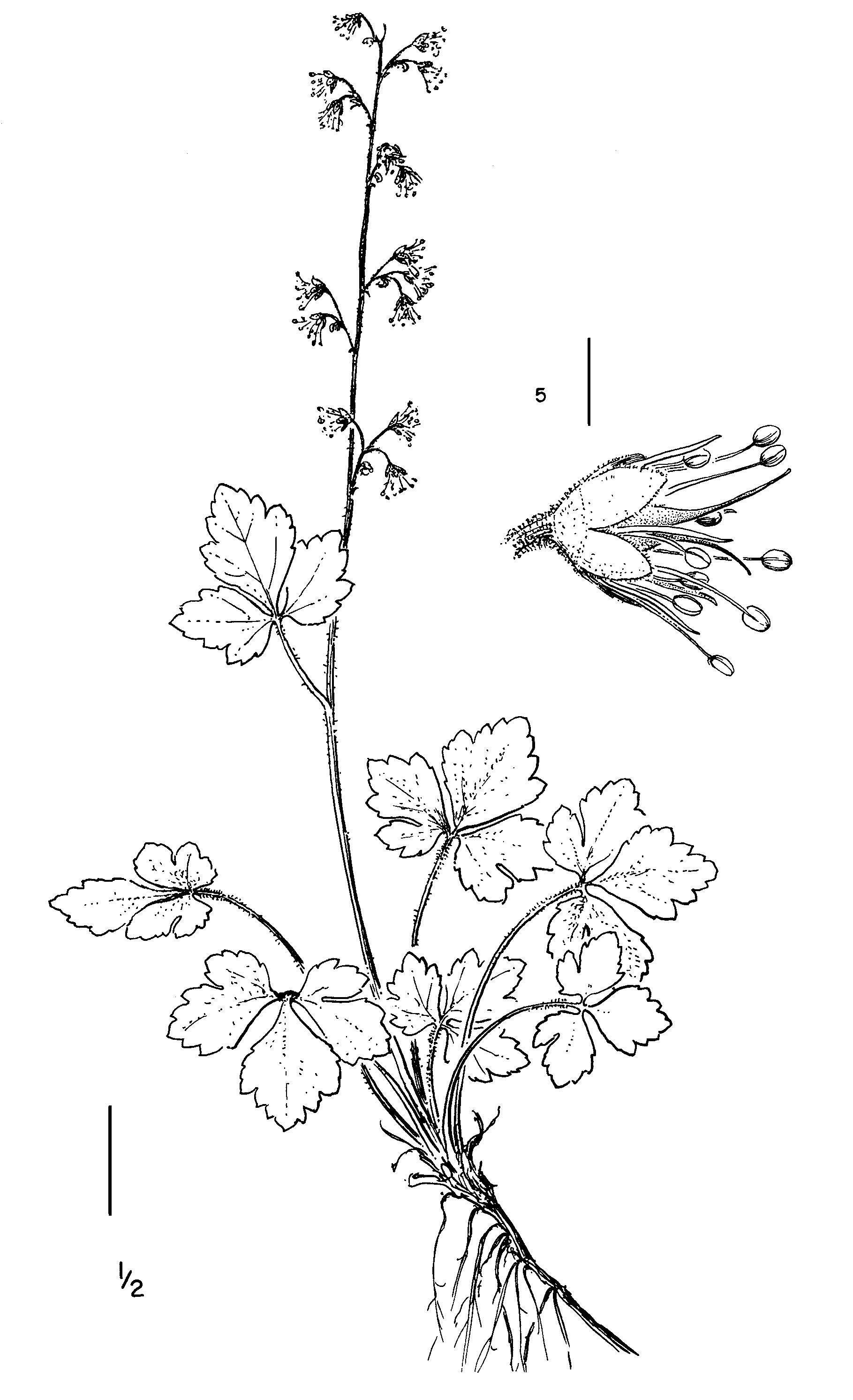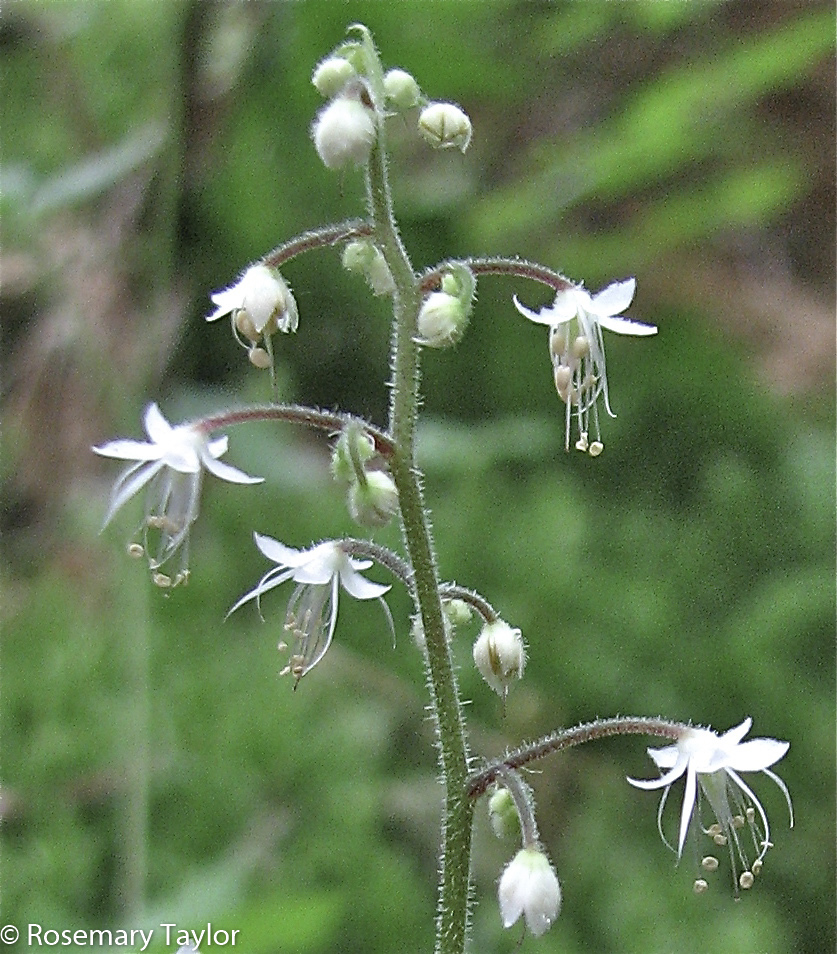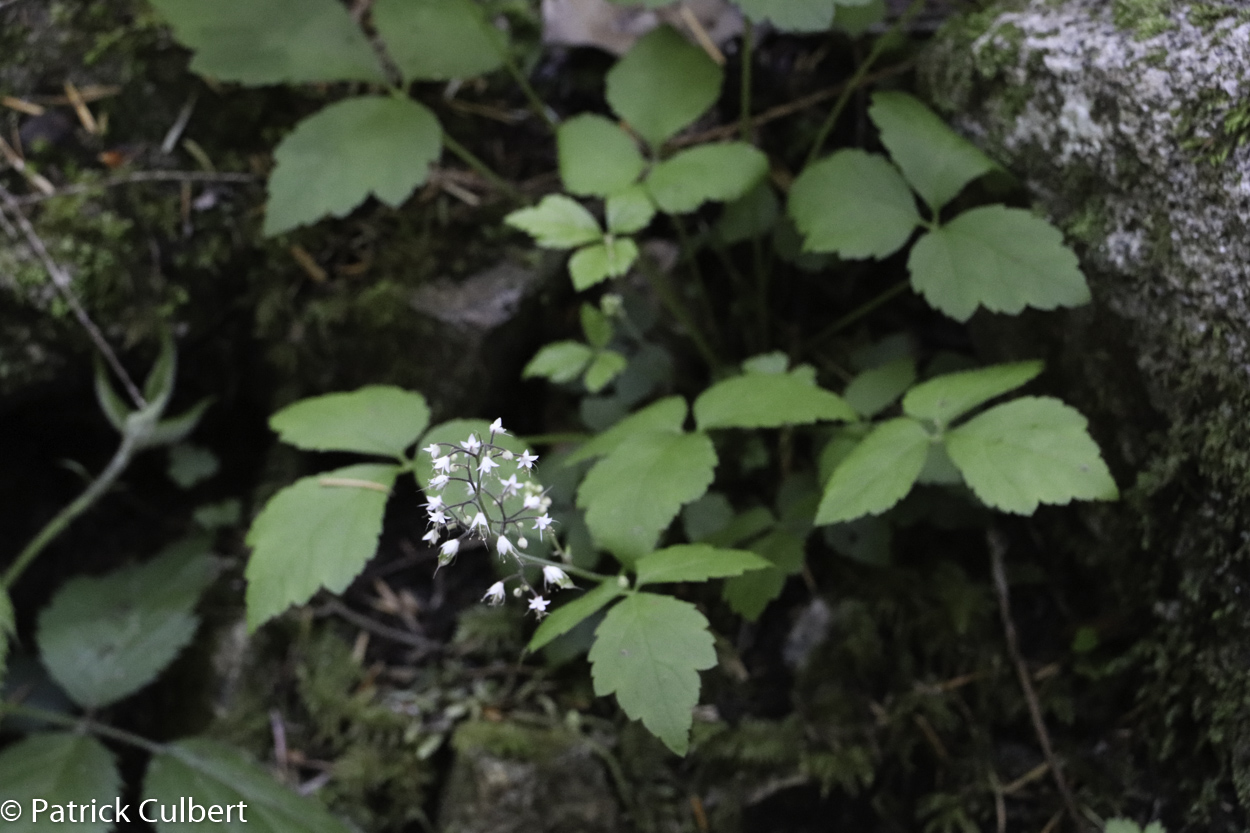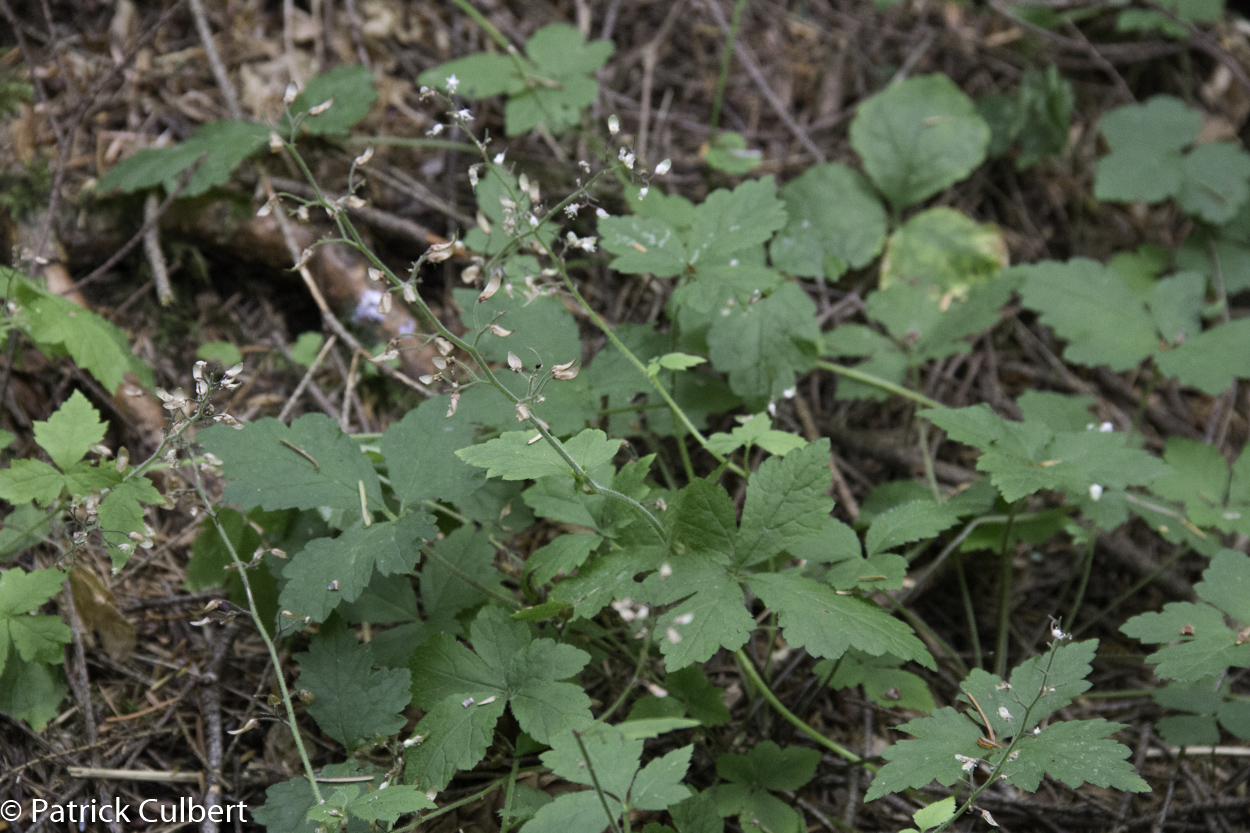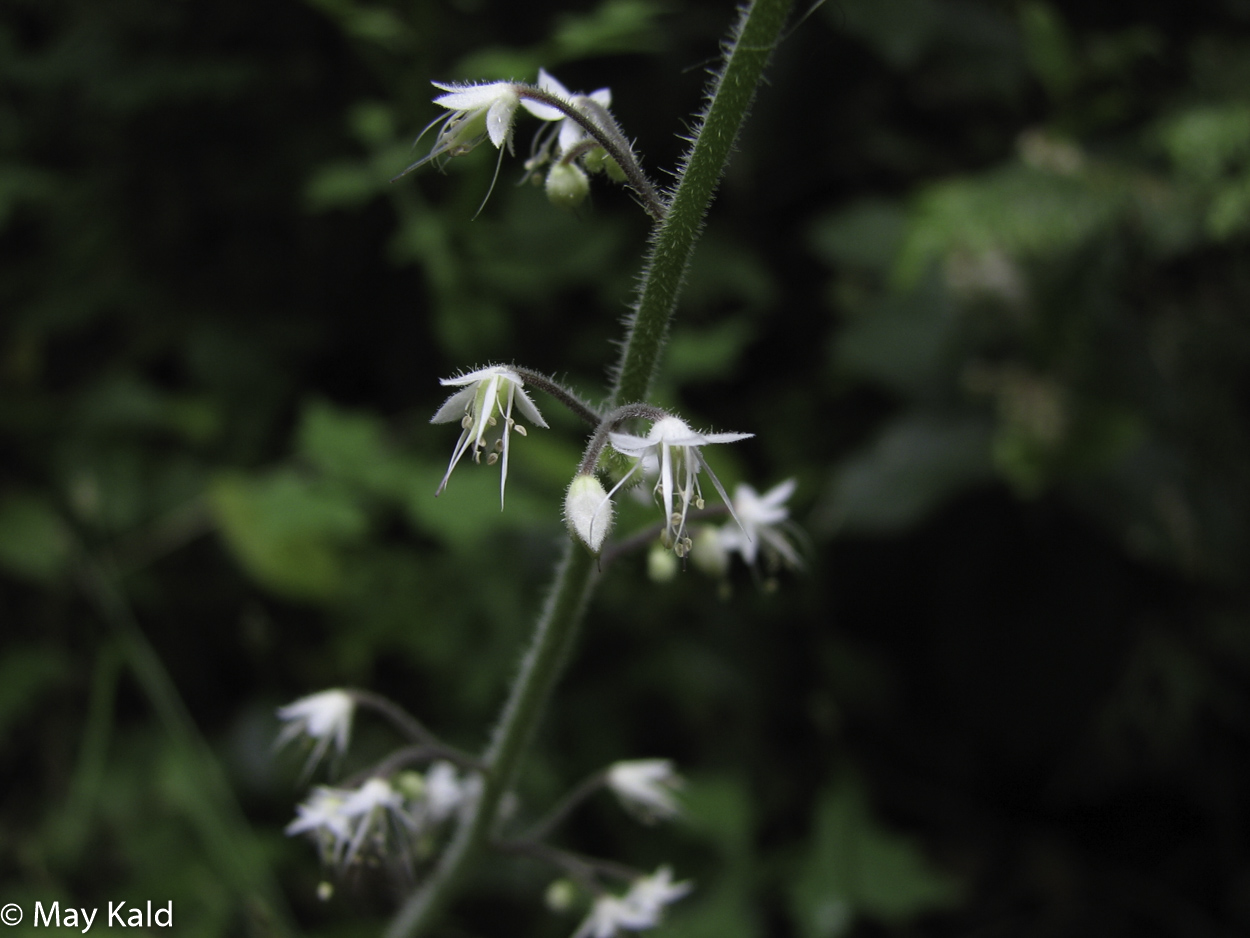Tiarella trifoliata – three-leaved foam-flower
Common Name
three-leaved foam-flower
Family
Saxifragaceae
Scientific Name
Tiarella trifoliata
Soil Moisture Regime (SMR)
- Medium (M)
- Wet (W)
Soil Nutrient Regime (SNR)
- Rich (R)
Video link
Hitchcock, C. Leo, and Arthur Cronquist. Flora of the Pacific Northwest: An Illustrated Manual © 1973. Reprinted with permission of the University of Washington Press.
General / Habitat
- Herb, 15-60 cm tall
- Moist, shady coniferous forests and clearings
- Widespread at low to middle and sometimes subalpine elevations
- Called “foam-flower” because flowers resemble specks of foam
Key Identifying Characteristics
- Leaves: Main leaves basal (grow from lowest part of stem) with 3 leaflets that are irregularly lobed and coarsely toothed, few stem leaves
- Three subspecies
- trifoliata (as described) has compound leaves with three leaflets
- unifoliata variety has simple 3-5 lobed leaves
- lacinata has three very deeply cleft leaflets
- Flowers: tiny and white, borne on tall, wire-like stalks in elongate clusters
- Fruit: small capsules that open to resemble sugar scoops, seeds black and shiny
External References
Sources
Douglas, G.W. et al (Editors). 1998-2002. Illustrated Flora of British Columbia, Volumes 1 to 8. B.C. Min. Environ., Lands and Parks, and B.C. Min. For., Victoria, B.C.
Pojar, J. and A. MacKinnon. 2014. Plants of Coastal British Columbia Including Washington, Oregon & Alaska. B.C. Ministry of Forestry and Lone Pine Publishing. Vancouver, B.C.

